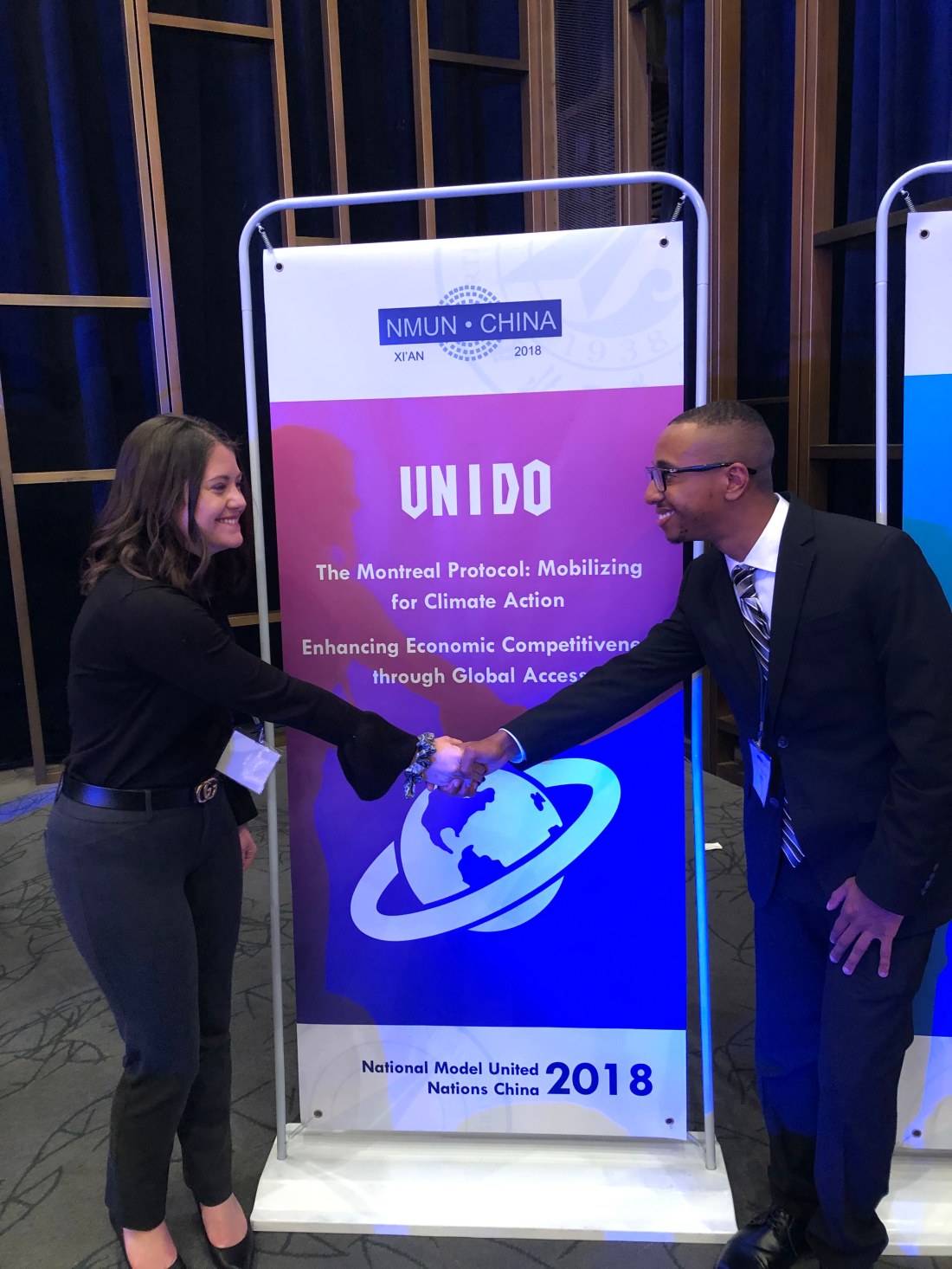Our conference commenced with a thorough rules training and an incredible opening ceremony. Patrick Parsons, the Deputy Secretary-general, conducted the rules training. Here we learned the time for each speech and other info necessary to have a successful committee session. He explained to us where we could find both the short and long form of the rules and then left the last 30 minutes or so to take and answer questions. The opening ceremony and welcome dinner were nice. They included many speakers and live performances. After dinner on Monday, the committee sessions began.
 |
| My co-ambassador Kali Fleming and I representing Japan UNIDO at the opening ceremony. |
Each committee session begins with a roll call of each country, where you stated if your country is “present” or “present and voting.” All the U of A countries are ALWAYS “present and voting” no matter what! During the first session, we first worked on setting the agenda. The group voted to start with Issue 2. For UNIDO, this was
Enhancing Economic Competitiveness through Global Access. I’m not sure how the other committees decided to set their agenda, but each committee is required to set the agenda. Once we had the agenda set, committee sessions were divided into formal and informal sessions. Formal sessions consisted of speeches from Member States on the speaker’s list. Informal sessions are where the delegates would break for caucusing and work on working papers and draft resolutions. This process repeated until we voted for the final draft resolutions. Unfortunately, we did not vote until the very last committee working sessions, so we did not have a chance to tackle Issue 1, which for UNIDO, was the
Montreal Protocol: Mobilizing for Climate Action. In the end, UNIDO ended up with four draft resolutions. All 4 were passed. In one of the draft resolutions, a clause from my committee was left out. My co-ambassador and I had to complete an amendment form. Friendly amendments are ones where all sponsors (major contributors to working paper language) on the working paper agree to amend. Unfriendly is the opposite. This amendment was unfriendly since one of the sponsors (Ukraine) left the conference early. This means the entire body had to vote on it. The majority voted on it, and our clause was added to the resolution! My co-ambassador and I gave wonderful speeches. We alternated speaking during each committee session and spoke a combined 9 times. Our speeches consisted of various things including commending the work of the body, explaining our position, and getting signatories for our working papers. Japan UNIDO had language on three of the four final resolutions passed. Overall, I would say our committees had a positive experience in the sessions and the conference as a whole. Although Japan did not finish with an award, my co-delegate and I gave our all and actively participated.


